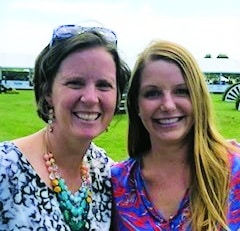Program
Destination: Her choice.

We operate from the exit ramp for survivors of human trafficking.
OUR PROCESS
-
- Our process is rooted in its strong partnerships with aftercare programs nationwide that nominate women to EHN. These after programs provide emergency and immediate needs to survivors to ensure a level of stability. When they are ready, they nominate them to EHN.
OUR ADVOCATES
-
- Our trauma-informed Advocates collaborate with nominees on a self-determined Empowerment Plan that spans 12 to 18 months and focuses on housing solutions, financing education, and establishing steady wage career.
OUR SUPPORT SYSTEM
-
- In line with best practices working with domestic violence survivors and homeless persons, EHN supports a permanent housing model and career paths that focus on the individual’s unique needs and plans.
OUR APPROACH
-
- This is not a handout. EHN’s innovative approach leans into existing services to eliminate overlapping resources while putting each survivor in the driver’s seat, often for the first time. It is true empowerment, with each survivor at the center of service, determining her own success.
OUR HISTORY
 Meet our founders— Kristy Norbert and Abby Fabiaschi . They are both believers in the power of generational change and know that if given the opportunity, survivors can tranform their dreams into their reality. Drawn together by shared core values and beliefs, they started Empower Her Network because no one was focusing on what happened to survivors after their basic needs were met. They decided to build an organization to break cycles of exploitation and poverty forever.
Meet our founders— Kristy Norbert and Abby Fabiaschi . They are both believers in the power of generational change and know that if given the opportunity, survivors can tranform their dreams into their reality. Drawn together by shared core values and beliefs, they started Empower Her Network because no one was focusing on what happened to survivors after their basic needs were met. They decided to build an organization to break cycles of exploitation and poverty forever.
“ It is an honor to serve the anti-trafficking community, alongside organizations and survivors. We are helping to create the world we want to live in.”
– Kristy Norbert,
Co-Founder & Executive Director of EHN
EXAMPLES OF BARRIERS EHN ADDRESSES
 Most survivors exhaust aftercare services without realistic long-term economic alternatives. They present at extreme risk for re-trafficking and homelessness.
Most survivors exhaust aftercare services without realistic long-term economic alternatives. They present at extreme risk for re-trafficking and homelessness.
They need assistance tackling societal barriers surrounding housing, education, and career to break exploitation and poverty cycles and remain forever free.
She was trafficked for years and never graduated high school. She stood out to her case worker in our partner program because she’s motivated to finish her education and start a career. She takes advantage of the opportunities given to her by the program she’s in, and has a tremendous amount of motivation and ambition. She also has to move out of her temporary living situation. She can afford rent, but has terrible credit because a trafficker used her identity. How can she find permanent housing? If she can’t, how will she keep her job without an address? She’s worked so hard and doesn’t want to be trapped in the system forever. Her case manager knew she’d be a perfect fit for Empower Her Network, could picture her getting her GED, maybe even going to college. She has the charisma and tenacity it takes to start this next chapter, she just needs help removing obstacles that seem impossible to overcome.
Empower Her Network collaborated with her on an 18 month Empowerment Plan that will remove the obstacles in her way and clear the path for independence. Because we were established to address a gap in services, demand is high and we work carefully with our partners to collaborate and create a plan forward.
- Survivor has a job and can afford rent, but not the upfront last month/security deposit required
- Employed and mentally/physically ready survivor in a position to go back to school, who cannot afford the delta between financial aid and tuition
- Survivor with a specialty skill set from her home country that requires a certificate or license to practice in the United States
- There is a promising vocational path, but no financial aid offered to get the certificate
- Survivor has a skill set that requires equipment to leverage (i.e., seamstress)

